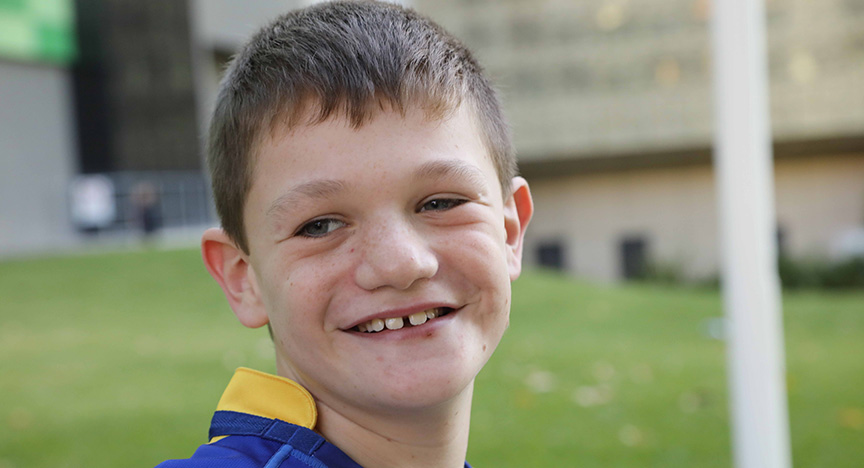
As a toddler, Harrison began showing difficulties with communication and social interactions but his mum, Skye, never imagined a genetic disorder would be the underlying cause.
Harrison was diagnosed with Fragile X syndrome by his paediatrician at the age of four via a simple blood test. The condition, which affects around one in 3,600 boys and one in up to 6,000 girls, is a result of a defect in the FMR1 gene on the X chromosome and causes various developmental issues, including cognitive impairment and learning disabilities.
“I had never heard of Fragile X. I didn’t know what it was, or what it would mean for us,” Skye said. “I started doing lots of research and joined family support groups.”
In his early school years, Harrison experienced social anxiety and would become overwhelmed with large crowds or loud events, preferring to spend time alone in his room.
“He had issues at school and problems with school attendance. He also had difficulty regulating his emotions and could become angry quickly and lash out,” Skye said.
“About three years ago, I heard about a trial for new treatment options, and I jumped straight on it. I started ringing around until I spoke to someone who could tell me more about the program.”
In 2019, Harrison was enrolled in a multi-site clinical trial led by Children’s Health Queensland designed to test the use of a medicinal cannabis gel as a treatment for anxiety in children with Fragile X.
“Initially I was excited for Harrison to take part, but a bit nervous. After a few months of ups and downs, everything levelled out and we saw rapid changes in his behaviour,” Skye said.
Since then, Skye said his communication has improved and his family relationships are better. Feedback from his school has also been positive, with multiple reports of improvements in his school performance.
Last year, Harrison was also diagnosed with autism spectrum disorder by specialists involved in the study, which has helped to direct further support for him at school.
Now ten, Harrison continues to have the gel treatment applied to the skin on his back or legs twice a day, and he visits the Queensland Children’s Hospital for a check-up once a year.
“While he still likes to spend time in his room, he is so much better now. We can enjoy family activities and holidays together now that would have been too much for him before,” Skye said.
“We do have to push him to keep active, so we try to encourage him to do activities that he enjoys, like swimming and trampolining. He has also been involved in a modified ruby program for three or four years, it’s a real community and he loves being part of that team.”
While Harrison has seen some improvements in his anxiety as part of the clinical trial, further studies are required to evaluate the impact of these types of medications for children living with developmental disorders, like Fragile X. Any new medications for children and young people are carefully evaluated to ensure they are safe, effective and offer a proven benefit to their health and/or quality of life.